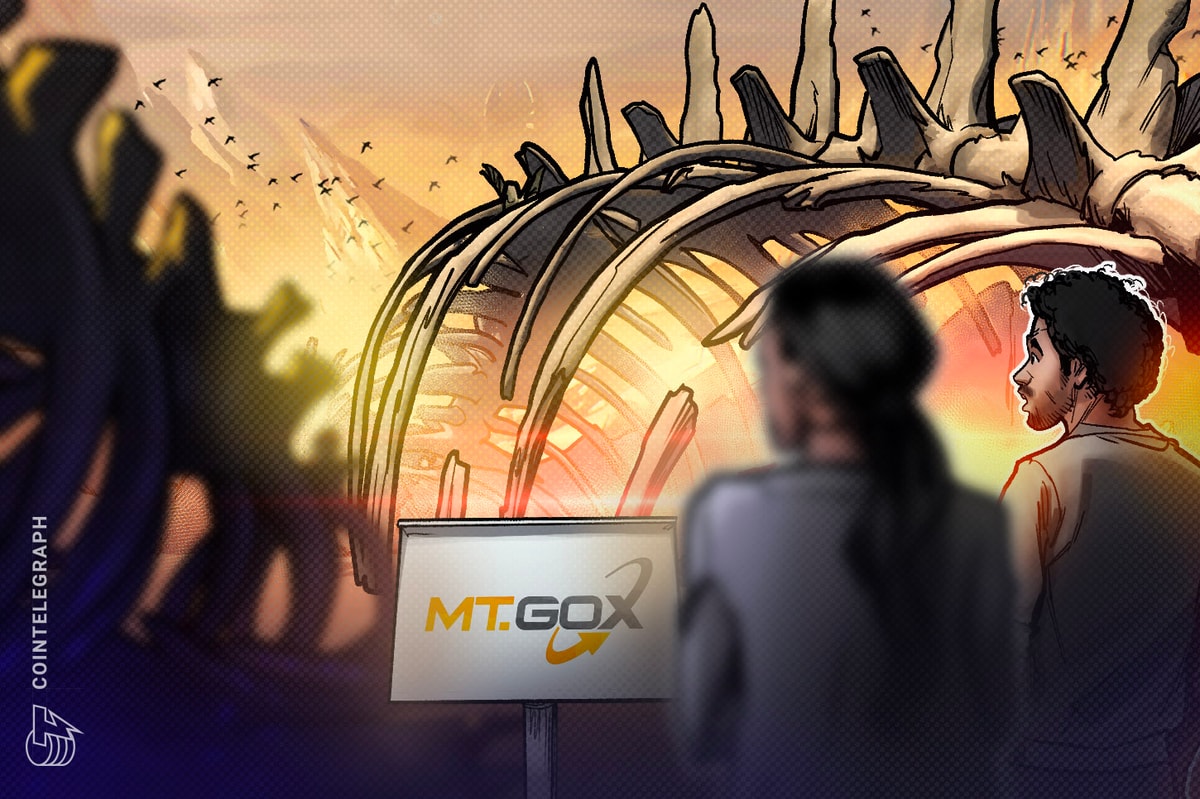In the early days of Bitcoin, Mt. Gox was by far the most prominent Bitcoin (BTC) exchange in the world. The Tokyo-based company was responsible for m
In the early days of Bitcoin, Mt. Gox was by far the most prominent Bitcoin (BTC) exchange in the world. The Tokyo-based company was responsible for more than 70% of all Bitcoin transactions in 2013. However, by early 2014, it had collapsed spectacularly, leaving investors and traders with losses amounting to hundreds of millions of dollars.
The downfall of Mt. Gox was a defining moment in the history of Bitcoin and cryptocurrency in general, with several regulators, market analysts and industry experts continuing to study the case to prevent such instances in the future. Moreover, the saga has continued to serve as a cautionary tale for the cryptocurrency industry, highlighting the potential risks and pitfalls associated with digital currency trading and investments.
Mt. Gox: The early years
Mt. Gox was launched in 2010 by Jed McCaleb, a programmer and entrepreneur who had previously founded the file-sharing network eDonkey2000. At the time, Bitcoin was still a niche technology that was largely unknown outside of a small group of enthusiasts and developers. Mt. Gox was one of the first exchanges that allowed users to buy and sell Bitcoin for fiat assets, thereby quickly amassing a high degree of popularity among early adopters and traders.
Recent: 4 out of 10 NFT sales are fake: Learn to spot the signs of wash trading
In 2011, McCaleb sold Mt. Gox to Mark Karpeles, a French software developer who had previously worked on various projects, including an online marketplace called “Magic: The Gathering Online Exchange.” Karpeles moved the company’s headquarters to Tokyo and began to expand its operations, opening up new markets and adding support for additional cryptocurrencies. This transformed Mt. Gox into the most prominent crypto trading ecosystem of the early 2010s.
The hack
In February 2014, Mt. Gox abruptly halted all withdrawals from its platform, citing technical issues and security concerns. The company’s website went offline, and rumors circulated that the exchange had been hacked. A few days later, Karpeles held a press conference in Tokyo where he confirmed that Mt. Gox had indeed been hacked, and miscreants had stolen 850,000 Bitcoin — worth approximately $450 million at the time.
The Mt. Gox hack was one of the largest thefts in the history of Bitcoin and cryptocurrency, and it had a significant impact on the broader industry. The price of Bitcoin dropped sharply in the days following the announcement, with many investors and traders losing confidence in the security and reliability of digital currency exchanges.
Mt. Gox hack aftermath
In the months following the Mt. Gox hack, there was great uncertainty and confusion about what had happened to the stolen Bitcoin, and who was responsible for the theft. Karpeles initially claimed that the coins had been stolen due to a “bug” in Mt. Gox’s software, but experts and members of the Bitcoin community widely criticized this explanation.
In March 2014, Mt. Gox filed for bankruptcy protection in Japan, and Japanese authorities seized the company’s assets. Karpeles was eventually arrested and charged with embezzlement and fraud in connection with the exchange’s collapse, but he has consistently maintained his innocence, claiming that he was simply a victim of circumstances beyond his control.

The Mt. Gox bankruptcy proceedings were complicated and protracted, with multiple legal challenges and competing claims from creditors and investors. In 2018, a Japanese court ruled that Mt. Gox’s assets should be liquidated and distributed among its creditors — a process that is still ongoing.
How are the reimbursement proceedings going?
In 2018, after several years of legal battles and investigations, a Japanese court approved a plan to compensate the victims of the Mt. Gox hack. The plan, which a court-appointed trustee proposed, called for the creation of a trust to hold the remaining Bitcoin and distribute them to the creditors. The trustee, Nobuaki Kobayashi, was tasked with overseeing the distribution of the remaining funds.
The first step in the plan was to convert the remaining Bitcoin into cash. The trustee sold over 35,000 BTC and 34,000 Bitcoin Cash (BCH) on various cryptocurrency exchanges, raising over $400 million. This was a significant achievement, as it represented the largest sale of cryptocurrency by a single entity in history.
Delays galore
In March 2020, the trustee announced that a new system had been implemented to allow creditors to make claims for the remaining funds. Creditors were required to submit proof of their claim, including documentation such as bank statements, transaction records and identification documents. The deadline for submitting claims was set for October 2020, which was subsequently pushed back to December.
In December 2020, the trustee announced that it had received claims from 99.9% of the creditors. The…
cointelegraph.com
